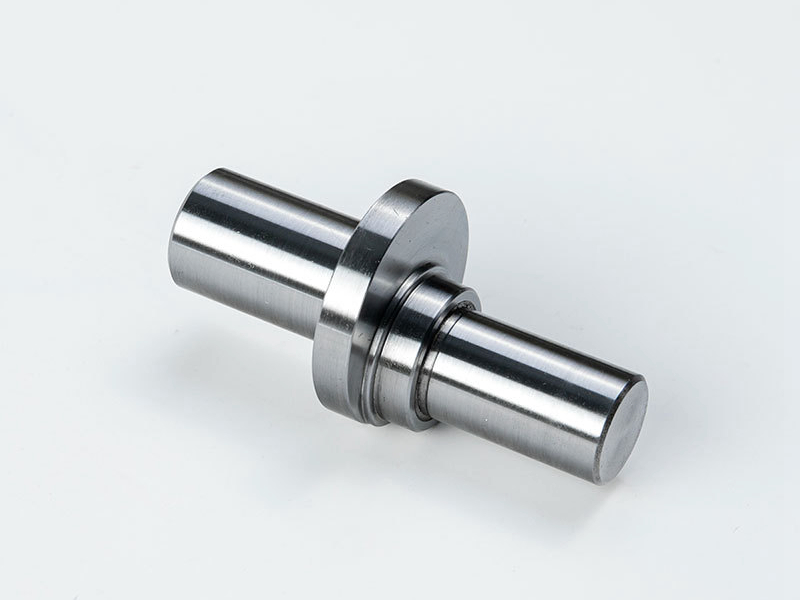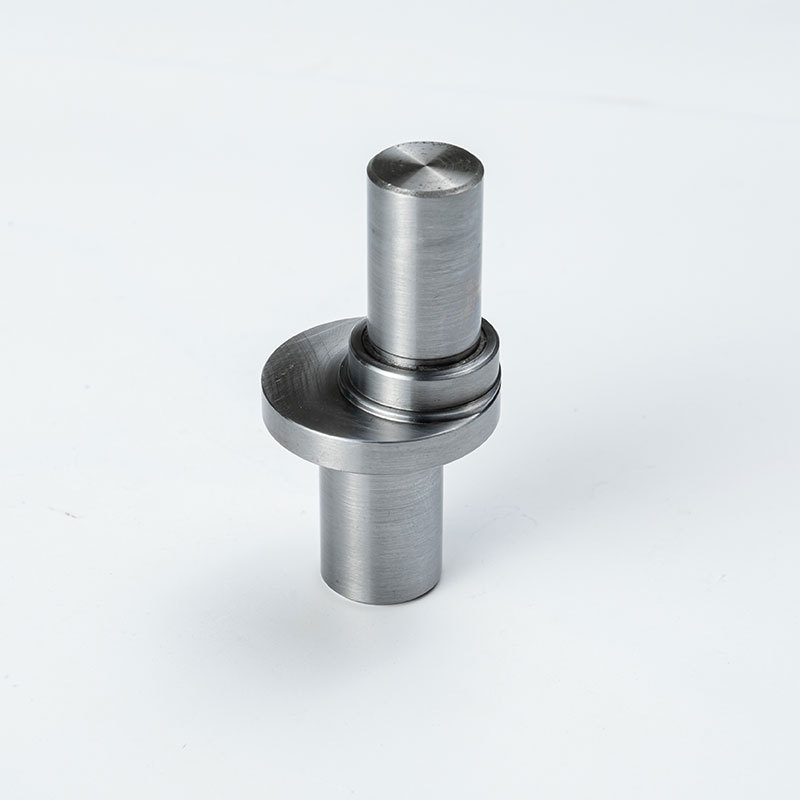CNC Turning and Grinding Solutions for 4140 Steel Eccentric Shafts in Automotive Air Compressors
CNC Machining of Eccentric Shafts: Precision for Automotive Air Compressor Reliability
Eccentric shafts are the core driving components of automotive air compressors, converting rotary motion into linear displacement for pneumatic systems. These shafts demand extreme precision in offset geometry, wear resistance, and mechanical strength. At Neway, we provide CNC turning and CNC grinding solutions for manufacturing high-precision eccentric shafts from 4140 steel, tailored to automotive compressor applications.
Enhanced with controlled nitriding, these shafts deliver high surface hardness, dimensional stability, and fatigue resistance—ensuring optimal compressor efficiency and long service life under variable engine conditions.

Why 4140 Steel Is Ideal for Eccentric Shafts
High Strength and Toughness Under Load
4140 alloy steel is a chromium-molybdenum grade with excellent tensile strength (up to 1100 MPa post-treatment) and shock resistance. It is ideal for applications involving cyclic loading, bending, and torque transfer—making it a perfect match for eccentric shaft design in air compressors.
Excellent Response to Nitriding
4140 responds exceptionally well to gas or plasma nitriding. Its alloy composition forms a hard diffusion layer that significantly improves wear resistance without compromising core toughness or causing dimensional distortion.
CNC Turning and Grinding Process for Eccentric Shaft Manufacturing

CNC Turning for Base Geometry and Offset Definition
Turning defines the shaft’s concentric and eccentric sections in a single setup using custom fixturing and live tooling. Key features machined include:
Eccentric throw (typically 2–6 mm offset)
Shaft shoulders, threads, and coupling zones
Reference datums for post-process grinding
Turning tolerances:
Diameter: ±0.01 mm
Offset accuracy: ≤ ±0.02 mm
Surface finish (pre-grind): Ra ≤ 3.2 µm
CNC Grinding for Journal Precision and Load-Bearing Surfaces
After heat treatment, CNC grinding is used to finalize journal and eccentric profiles. This includes:
Ground concentric and eccentric diameters: ±0.005 mm
Surface roughness for bearing zones: Ra ≤ 0.4 µm
Total indicated runout (TIR): ≤ 0.01 mm
These parameters ensure rotational balance and wear consistency during compressor operation.
Nitriding Surface Treatment for Wear and Fatigue Resistance
Our shafts undergo nitriding to create a hardened surface layer with excellent tribological properties:
Surface hardness: 900–1100 HV
Case depth: 0.3–0.6 mm
No dimensional distortion, no quenching required
This process enhances resistance to scuffing, micro-pitting, and abrasive wear—critical for high-frequency, oil-lubricated compressor environments.
Inspection and Process Validation
Runout and eccentricity measured with precision V-block and dial indicators
Surface finish validated with profilometers at all bearing contact zones
Nitrided layer verified with microhardness depth profiles
COC, nitriding charts, and dimensional inspection reports included
Why Choose Neway for CNC Eccentric Shaft Production
Expert machining of 4140 steel components with consistent offset accuracy
Integrated nitriding heat treatment for wear-critical compressor components
Mass production capability with in-line QA control
One-stop CNC service from prototype validation to full-scale manufacturing
CNC Manufacturing Services for Automotive Compressor Shaft Projects
Neway offers end-to-end machining for eccentric shaft applications across automotive compressor and powertrain systems. Key services include:
CNC Turning and Grinding: Accurate offset machining for balanced high-speed components
4140 Steel CNC Machining: Precision shafts with enhanced fatigue performance
In-House Nitriding Solutions: Superior surface hardening with minimal distortion
Our process ensures that each eccentric shaft meets the demanding standards of automotive OEMs for durability, accuracy, and consistency.
FAQs
What is the maximum offset tolerance you can maintain for eccentric shafts?
How does nitriding improve wear resistance in compressor applications?
Can Neway provide mass production for automotive compressor shaft projects?
What methods are used to verify eccentricity and runout?
Do you provide heat treatment certification and hardness test reports?
